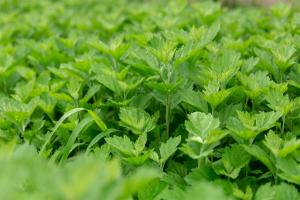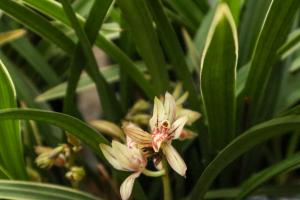Is Laundry Water Bad for Plants?
When it comes to gardening, one of the most common questions people ask is whether using laundry water to water plants is safe or not. Laundry water, also known as gray water, is the wastewater that comes from a washing machine. It contains detergents, fabric softeners, and other chemicals that are specifically designed to clean clothes. But can these chemicals harm or even kill your beloved plants? Let's dive in and find out.
The Risks of Using Laundry Water on Plants
While gray water can be an excellent source of water for plants, there are some risks involved. The chemicals present in laundry water can be harmful to plants, especially if they are used in large quantities. Some of the risks associated with using gray water on plants are:
Damage to plant foliage
Damaging plant roots
Contaminating the soil
Reduced plant growth and yield
If you use laundry water on your plants regularly, the chemicals in the water can build up in the soil and reach toxic levels. This can lead to stunted plant growth, yellowing leaves, and even plant death.
Which Chemicals in Laundry Water Are Harmful to Plants?
Not all chemicals in laundry water are harmful to plants. However, some of the chemicals can be toxic and cause serious harm. Here are some of the most common chemicals in laundry water that can be harmful to plants:
Phosphorous
Sodium
Chlorine
Bleach
Boron
Fragrances and dyes
Phosphorous and sodium can accumulate in the soil, causing toxicity and hindering plant growth. Chlorine and bleach can damage plant tissues and roots, while boron can damage plant roots and cause leaves to yellow and wilt. Fragrances and dyes can also be toxic to plants, especially if used in large quantities.
How to Safely Use Laundry Water on Plants
While laundry water can be harmful to plants, there are ways to use it safely. Here are some things to keep in mind:
Use laundry water only on ornamental plants
Use laundry water on plants only once a week
Dilute the laundry water with fresh water (1:1 ratio)
Use laundry water only on the soil, and avoid getting it on the foliage
Avoid using laundry water on edible plants or fruits and vegetables
By following these guidelines, you can reduce the risks of using laundry water on your plants. Diluting the water with fresh water will help to reduce the concentration of harmful chemicals in the water, and using it only once a week will prevent the buildup of harmful chemicals in the soil.
In Conclusion
Laundry water can be a great source of water for your plants, but it can also pose risks if not used properly. To prevent damage to your plants, it's important to understand which chemicals in laundry water can be harmful and how to use the water safely. By following the guidelines mentioned above, you can water your plants with laundry water without harming them.

 how many times do yo...
how many times do yo... how many planted tre...
how many planted tre... how many pine trees ...
how many pine trees ... how many pecan trees...
how many pecan trees... how many plants comp...
how many plants comp... how many plants can ...
how many plants can ... how many plants and ...
how many plants and ... how many pepper plan...
how many pepper plan...































